Division of Clinical Medicine
November 18, 2024 2025-09-12 8:38Division of Clinical Medicine
Division of Clinical Medicine
Training compassionate physicians to deliver high-quality, equitable care for Rwanda and beyond.
Overview
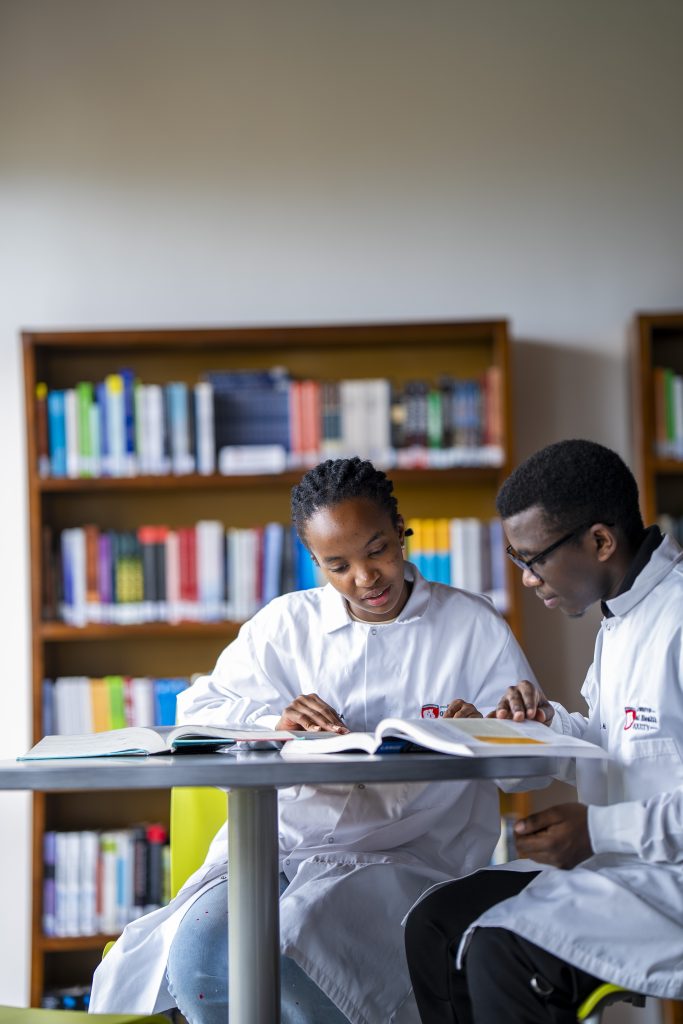
Medical Ethics and Law Course
This course's main objective is for students to obtain a strong foundation in medical ethics. This goal is to ensure that each student can effectively navigate the challenging ethical dilemmas that will arise throughout their clinical and research careers. There is a secondary objective, which is that both students and teachers develop a functional appreciation for the value and efficacy of diverse approaches to medical ethics separately and, most importantly, when these approaches are deployed together. Crucially, we create a space where global bioethical discourse is prioritized, and many voices (African, Western, and beyond) are heard and valued.
IPM – Intro to the Practice of Medicine Course
Introduction to the Practice of Medicine is for third-year medical students. students learn the knowledge and skills essential for performing a medical history and physical examination. The module emphasizes patient interviewing, acquiring a medical history, performing a comprehensive physical examination, and written communication. Other core clinical skills including clinical reasoning, professionalism, and challenging patient communication are also discussed. The course is delivered on UGHE campus in classroom in simulation settings, and the clinical setting of Butaro Level Two Teaching Hospital.
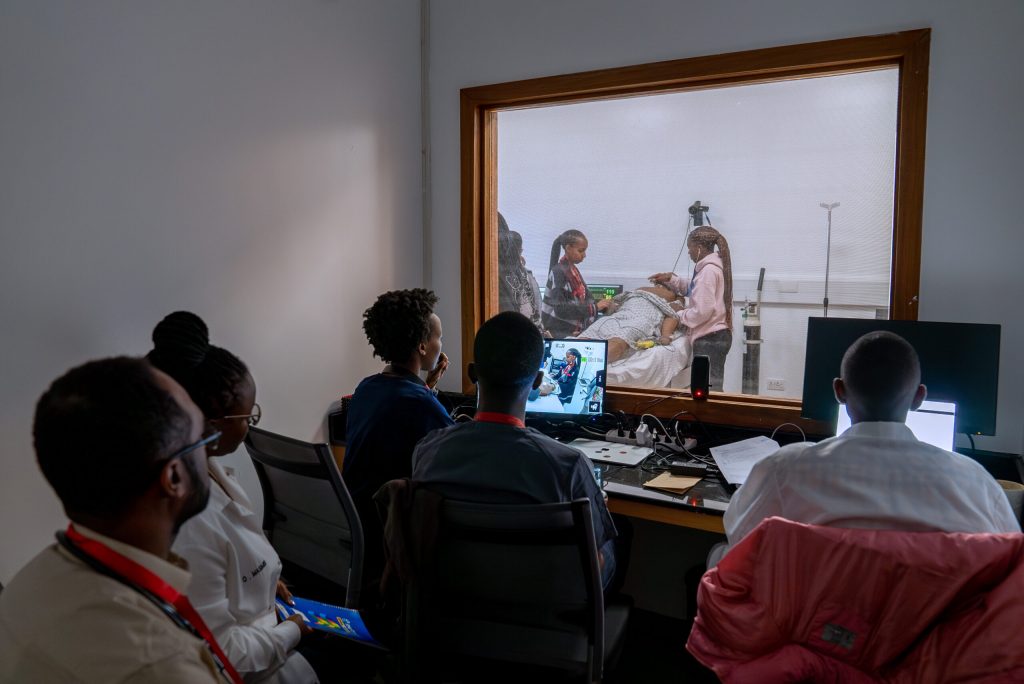

Internal Medicine
UGHE is a new medical school which strives to bring equity in health care delivery by teaching medical students to be change makers and leaders in the health system. UGHE’s training in internal medicine equips students to be independent practitioners by the end of their medical school education by providing students with a comprehensive foundation in managing common and complex medical conditions. The training uses innovative teaching approaches, such as case-based learning, simulation training, standardized patient encounters, and point of care ultrasound training to enhance clinical reasoning and decision-making skills for our students.
In their junior clerkship, students focus on developing essential patient interviewing and physical examination skills. They gain practical experience in recognizing, evaluating, diagnosing, and managing adult patients with medical conditions while actively participating in patient care discussions. During the senior clerkship, students build upon this foundation, becoming proficient in managing common medical disorders, responding to acute emergencies, and identifying complex cases requiring specialized care and referral.
Clinical rotations across multiple hospital sites expose students to diverse healthcare settings, patient populations, and medical conditions, enriching their learning experience. Additionally, working alongside experienced consultants from various global backgrounds introduces students to a spectrum of medical perspectives, evidence-based practices, and cultural approaches to care. This diversity cultivates a global outlook, fosters critical thinking, and broadens their understanding of internal medicine beyond regional contexts.
These factors together create a rich, dynamic learning environment that prepares students to excel in both clinical expertise and cultural competency, essential for modern medical practice.
Surgery
The Department of Surgery at UGHE is dedicated to training the next generation of surgeons equipped to address surgical needs in resource-limited settings. Our surgery clerkship is designed in two cycles, junior and senior, to provide a progressive, hands-on learning experience.
The junior clerkship focuses on building foundational competencies in history taking, clinical examination, differential diagnosis, and management of common surgical conditions, with an emphasis on emergencies. Through innovative and technology-based teaching, bedside teaching, and clinical rotations in wards, operating rooms, and outpatient clinics, students develop essential diagnostic and problem-solving skills.
The senior clerkship builds on this foundation by emphasizing operative surgery and training students to independently perform essential surgical procedures, such as laparotomy and management of open fractures, while recognizing complex cases requiring tertiary care. Students also benefit from focused rotations in orthopaedics, urology, neurosurgery, and paediatric surgery for a well-rounded exposure.
At UGHE, we aim to bridge undergraduate and postgraduate surgical education by inspiring students through mentorship, excellence, and immersive surgical experiences. Our innovative approach adapts global standards to the realities of low- and middle-income countries, integrating advanced surgical skills into undergraduate training to prepare students for immediate impact in district hospitals. The department also emphasizes the transition from internship to practice, ensuring graduates are equipped to address surgical challenges and transform care in their communities.
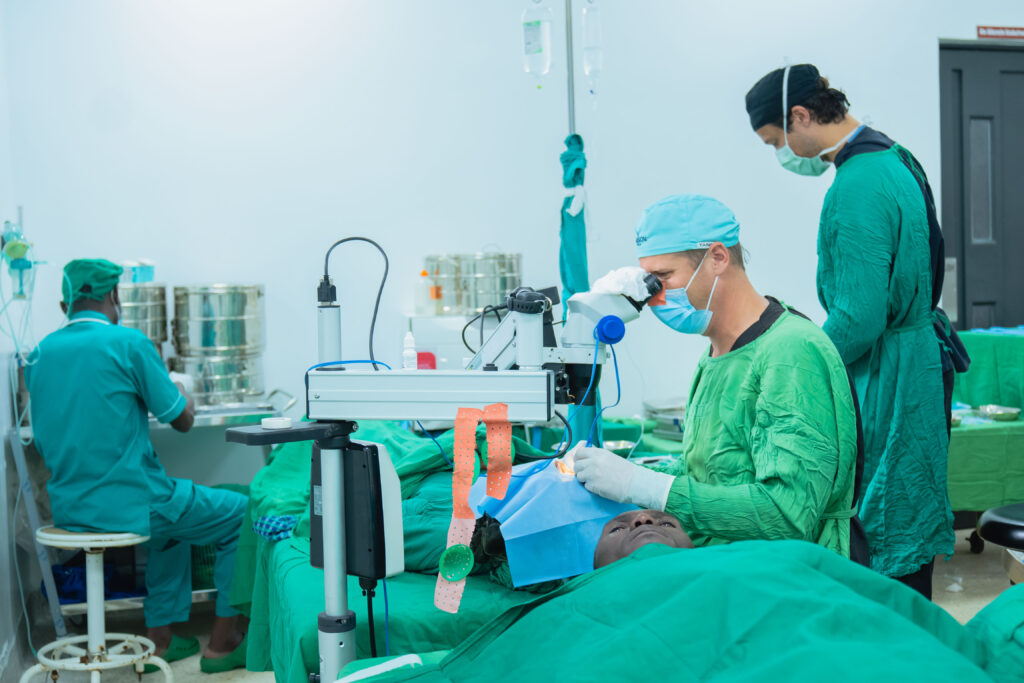
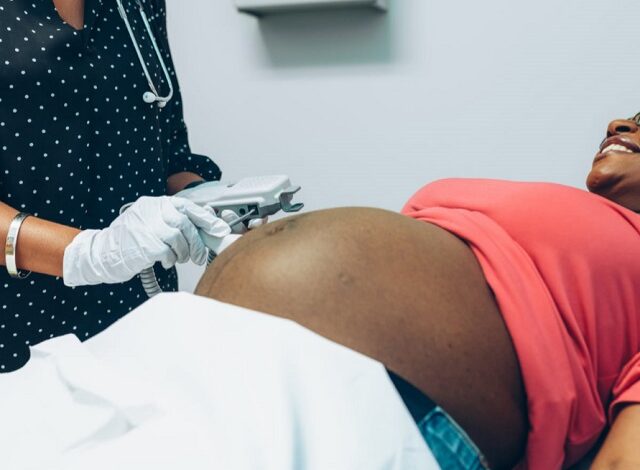
Obstetrics - Gynecology
Our department offers a cutting-edge, competency-based program designed to prepare medical students to deliver exceptional care from day one after graduation. Combining small group learning, hands-on clinical practice, and high-fidelity simulation training, students acquire advanced skills in diagnosing and managing obstetric and gynecologic cases. From attending deliveries and performing cesarean sections to managing obstetric emergencies, students are immersed in real-world scenarios that build confidence and expertise in providing compassionate, evidence-based care.
By training in diverse healthcare settings—including health centers, district hospitals, and tertiary hospitals—students gain a comprehensive understanding of the social, cultural, and economic factors influencing women’s health. This approach ensures they are well-prepared to address reproductive health needs, deliver family planning services, and tackle the complexities of maternal care. Our graduates emerge not just as skilled clinicians but as transformative leaders committed to reducing maternal mortality and morbidity, strengthening healthcare systems, and advancing women’s health in their communities.
Pediatrics
The pediatric training at UGHE equips medical students wiht the skills and knowledge and skills to take care for children ofages, from fragile preterm newborns to thriving adolescents. While most young people are healthy, many chronic diseases begin in childhood or youth, so our program emphasizes not only treating illnesses but also preventing chrronic conditions and their complications.
The pediatrics training in the hospital offers a unique and rewarding experience to our students. They learn to work closely with families, providing care that supports the well-being of both the child and their loved ones. They also experience the joy of seeing children recover quickly, knowing their efforts contribute directly to a brighter fugure for indivicuals and communitieies. Throuch hands-on training in newborn units, pediatric wards, emergency rooms and outpatient clinics, our students are well-prepared to be general practitioners who make a lasting impact on the lives of their youngest patients and their families. The training is split in two distinct hospital attachments designated Junior and Senior Pediatric clerkships

Junior and Senior Pediatrics Clerkship
The Junior Pediatrics Clerkship introduces students to the practice of the pediatric specialist and emphasizes patient interviewing, acquiring a medical history, and performing a comprehensive physical examination. Structured teaching and learning sessions, as well as time in our simulation center emphasizes the core concepts and supplement the learning that happens in the hospital setting. Students are followed closely by physician preceptors who guide their history taking, examination, case write-ups, and presentations and monitor their progress. While there is a final practical examination, acquiring and refining clinical skills are lifelong processes for any physician; ongoing formative evaluation ensures that students are on track the desire objectives and goals of the module
The second hospital attachment in paediatrics happens during the last year of medical school and is called the Senior Paediatric clerkship. It complements already achieved competencies in medical history, physical examination, with a focus on the whole management of Pediatric cases. At end of senior clerkships, students are able to identify and manage pediatric emergencies, provide ongoing care for all pediatric cases from newborns to adolescents and initiate appropriate referral for long term pediatric clinical conditions. This module relies on case based discussion, simulation, bedsides and clinical presentation with students embedded in clinical cares settings under the supervision of faculty. Students are evaluated frequently to ensure they are on track to become all round competent physician ready to change landscape of health care delivery in the sub-region are achieved in line with global health delivery and equity
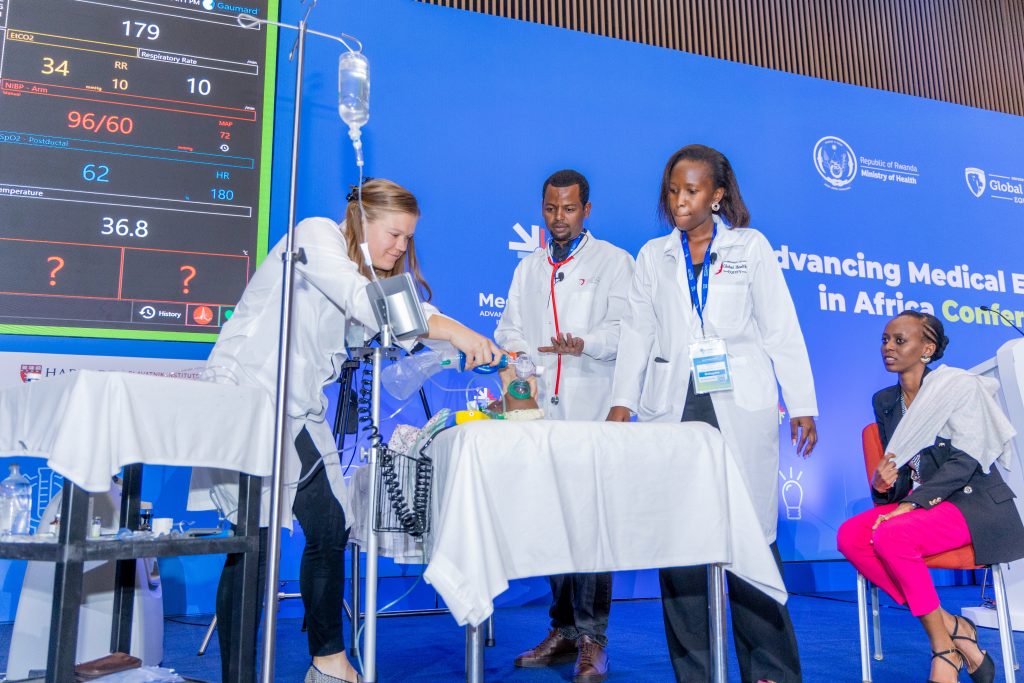
Emergency Medicine
The primary focus of the hospital-based training will be on students gaining a greater understanding of the role of emergency physicians and the emergency department in the hospital and health system . This is an opportunity to learn the unique skills and knowledge base needed to care for undifferentiated acutely ill and injured patients.
Psychiatry
Half of us will experience mental health issues at least once in our lifetime. This course explores the culture, theory, presentation, management, and stigma surrounding mental health conditions. Students will gain foundational knowledge of the main psychiatric disorders, the principles underlying modern psychiatric theory, commonly used treatments and their side effects, and the skills needed to apply this knowledge in clinical situations as general practitioners. In addition to this, the course will assist students in developing the necessary skills to apply the acquired knowledge in clinical situations. Emphasizing empathy and understanding, the course also encourages students to develop the appropriate attitudes necessary to respond empathically to psychological distress in all medical settings.

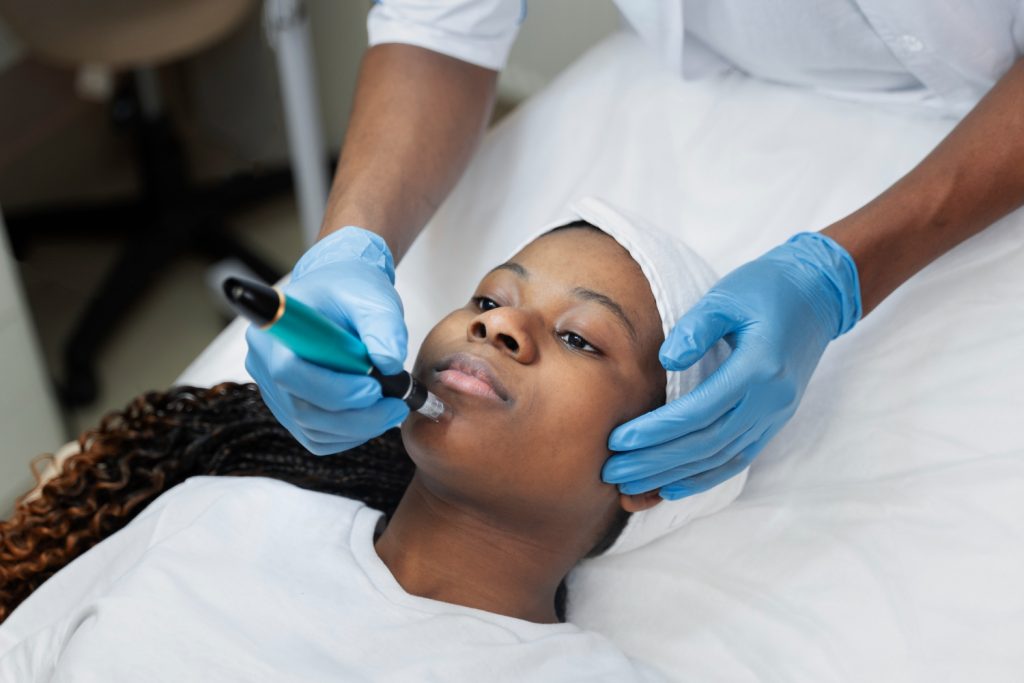
Dermatology
Students will understand the different types of common bacterial, fungal, and viral infections and infestations, and they will elaborate on the causes, clinical features, diagnosis, and treatment of common skin infections and infestations. Students will learn how to perform simple laboratory tests to diagnose some skin infections and infestations. ...Students will also learn more about epidemiology, pathogenesis, and clinical presentation of common skin conditions, paying particular attention to diagnosis, treatment, and follow-up. The module will also deal with identifying and approaching such patients in the outpatient department and the wards.
Radiology
Imaging has evolved more rapidly than many other specialties in medicine, encompassing everything from traditional chest X-rays to cutting-edge AI-assisted MRI scans. This module will provide students with the skills, knowledge, and aptitudes to understand the role of radiology in a clinical work-up and diagnostics. It also provides a foundation for interpreting imaging findings in common and emergency conditions, preparing students to navigate the dynamic and innovative field of medical imaging confidently. .
Major portions of the module include:
- An introduction to the physics of imaging, describing how major imaging modalities function, including the advantages and limitations of the different imaging modalities and the risks and precautions associated with use of radiation in imaging;
- Systems-based instruction emphasizing common indications for the different imaging modalities and imaging appearance of some common disease processes, focusing on emergency disease conditions; and
- Clinical exposure through practical sessions and rotations to familiarize students with the different imaging modalities and to improve students’ skills in image interpretation.
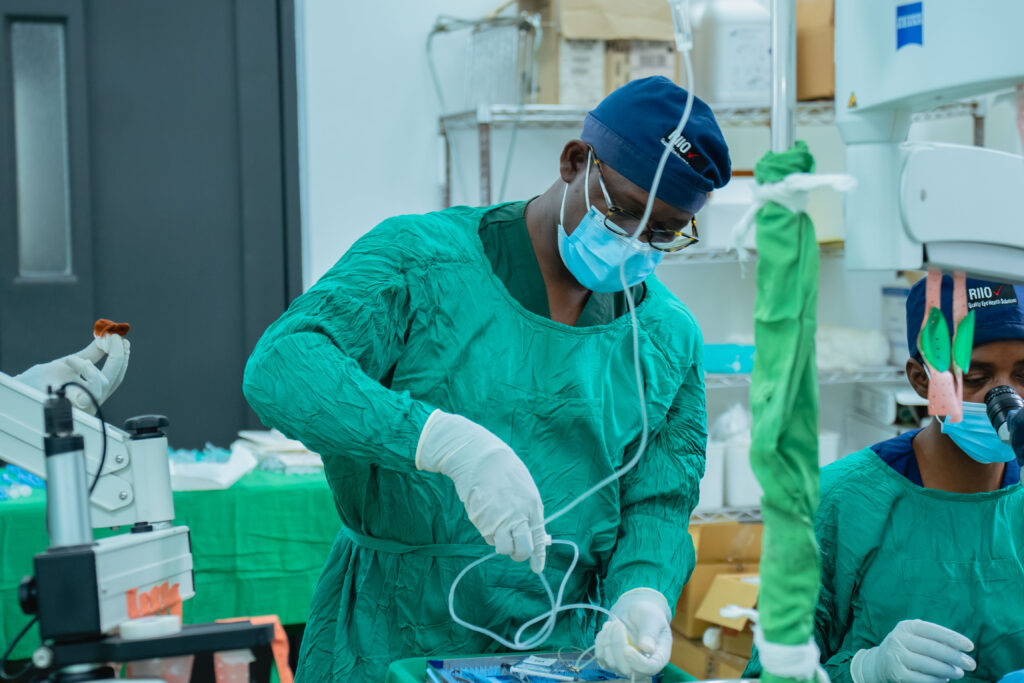
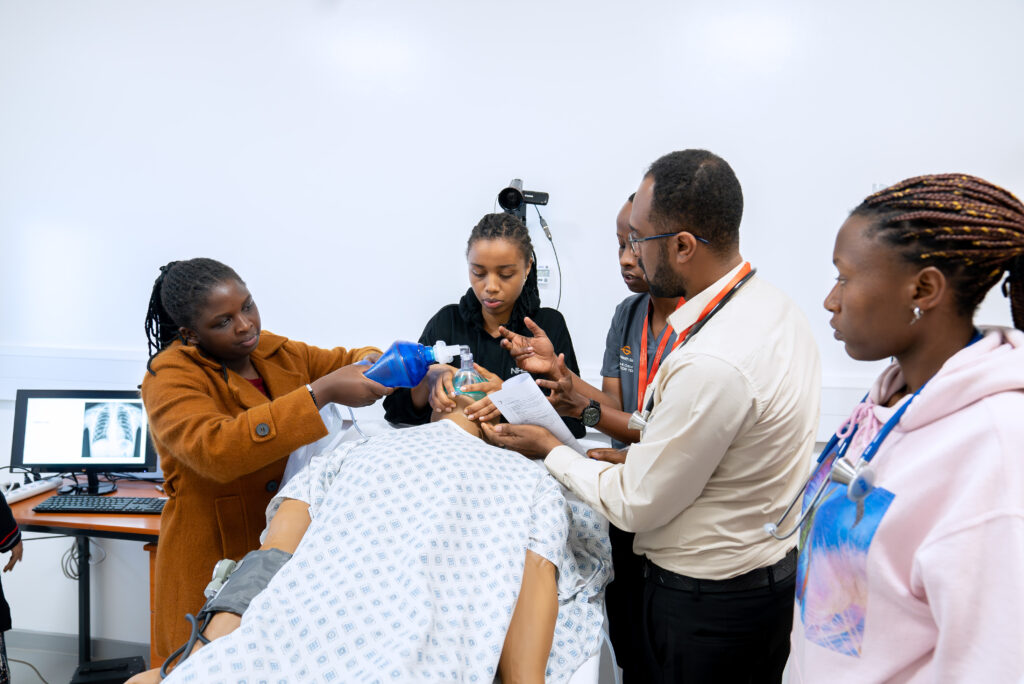
Anaesthesia and Critical Care
This module aims to give students introductory exposure to anesthesia, critical care, and perioperative medicine. Students will be expected to gain some knowledge and skills related to these specialties though this will not be comprehensive, and assessments conducted during the clerkship will be reflective of this. The primary focus of the attachment will be on students gaining a greater understanding of the role of the physician anesthesiologists in the care of the surgical patient with our hope being to inspire a future generation of doctors to consider the field of anesthesia and critical care. The more you engage, the more you are likely to gain!
ENT/OHNS
The purpose of this clinical attachment in this specialty (variously called: ear, nose and throat (ENT) otorhinolaryngology- head and neck surgery (OHNS), hereafter abbreviated as ENT) is for senior medical students to develop the knowledge, skills and attitudes necessary for understanding diseases of the organ systems covered by this specialty. This includes common congenital, inflammatory, degenerative, metabolic, traumatic and neoplastic afflictions of the ear, nose, throat, head, and neck organs. The course familiarizes the trainee with basic equipment used in the specialty and facilitates acquisition of skills to identify normal individual variations, enabling students to examine patients and recognize problems, understand basic and routine tests, perform minor procedures, prioritize steps in patient management, and refer patients in a timely and appropriate manner.
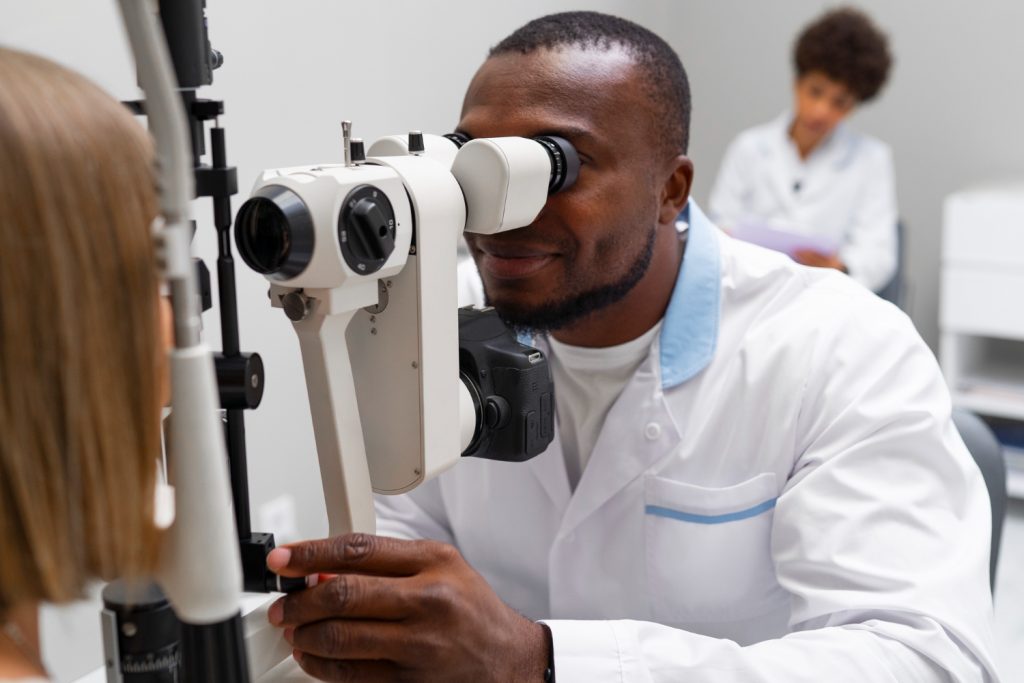
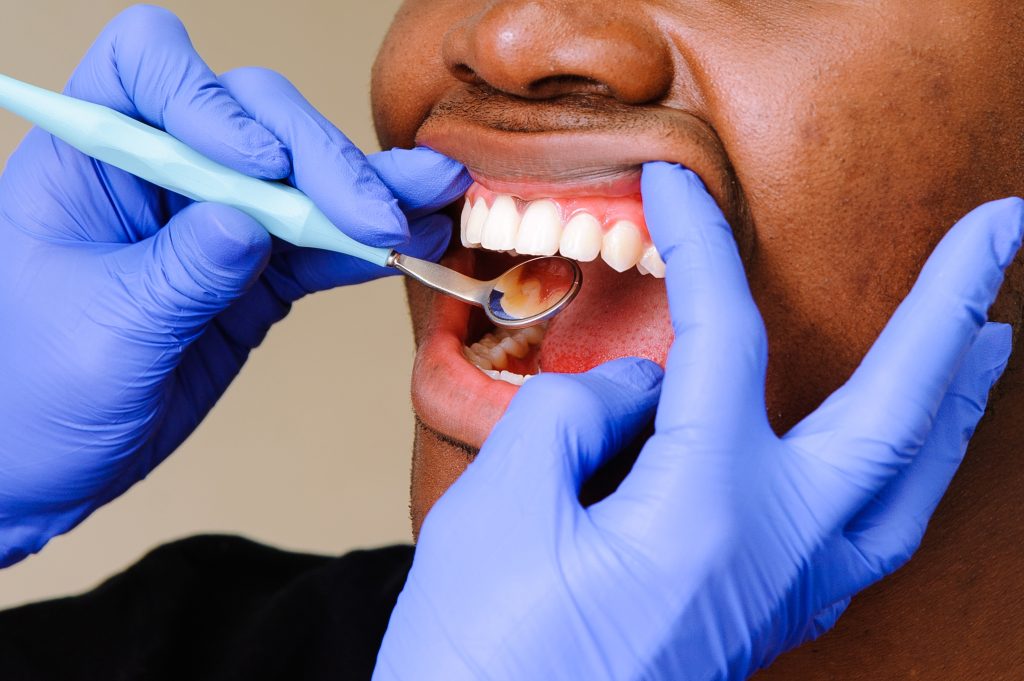
Dentistry
This course is designed to train undergraduate medical students to competently identify and manage common dental problems encountered in the community. Upon completion of the course, students will be able to diagnose and medically treat common dental problems. In addition, they will be able to identify those patients who would require referral to a dentist. The course provides students with the basic principles of dental and periodontal disease by imparting them with knowledge of the anatomy and physiology of the mouth and teeth, the basic mechanisms of selected dental conditions, and the principles of dental disease management.
Ophthalmology
This course empowers undergraduate medical students with the skills and knowledge to competently and confidently identify and manage common ophthalmic problems in the community. Through the hands-on, comprehensive training they receive, students will be able to diagnose and manage common ophthalmic problems. In addition, they will be able to identify those patients who would require referral to an ophthalmologist and refer them in a timely and appropriate manner. Key highlights of the course include:
- Foundational Knowledge: Gain a solid understanding of the anatomy and physiology of the eye and vision, the mechanisms underlying ophthalmic and neuro-ophthalmic diseases, and the principles of their management.
- Clinical Skills: Develop the ability to perform thorough ophthalmic assessments, especially for patients with systemic illnesses, and provide timely interventions to prevent complications.
- Preventive Care: Learn strategies to promote eye health, ensuring early detection and management of common ocular issues.
- Holistic Approach: Cultivate a deep appreciation for the importance of vision and its impact on overall health and well-being.
By the end of this course, students will be equipped to deliver effective and compassionate care in ophthalmology, bridging the gap between primary care and specialized treatment while prioritizing the preservation of vision and quality of life.



